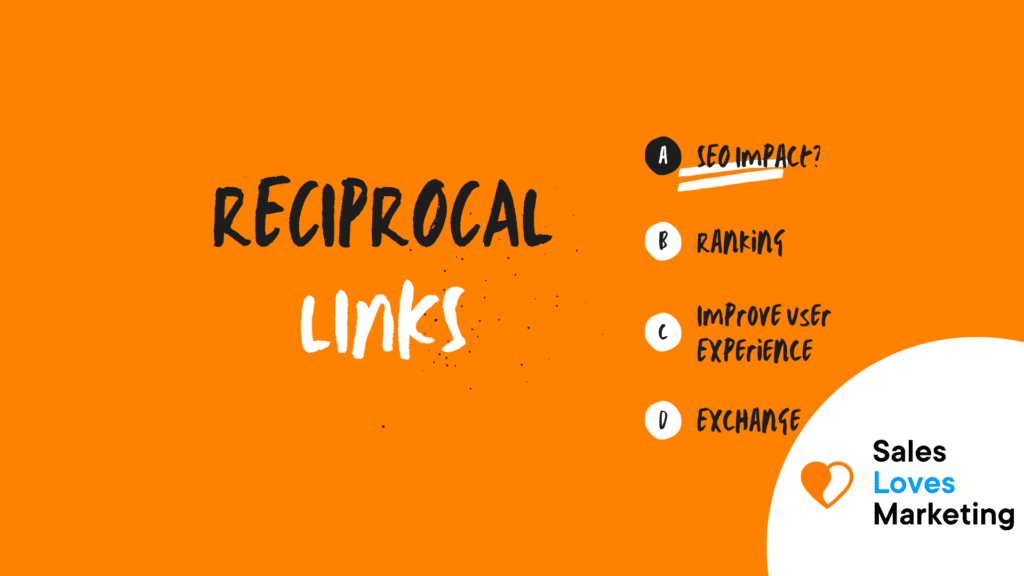What Are Reciprocal Links In SEO?
Reciprocal links are an agreed exchange of links between two different sites that have been created and are linked to each other because they cover similar topics or provide complementary goods and services; they help to create backlinks for each of the websites.
How Do You Create A Reciprocal Link?
- You must find additional excellent quality websites to exchange links.
- You must locate a link to them on the site.
- Send an email to the website with a short and friendly note, only after you have located a link to them, preferably addressing the owner by name.
- Sincerely praise something on the site. If something worthy of praise is not found, this site should not be on the list and should be removed.
- Talk to the website owner and explain that you have linked to their site, giving them the URL of the page where the link has been placed.
- Politely request a link to your own site, with a recommendation of a page where this link would be more appropriate.
- After a few weeks (preferably 3), if no reply is received, a reminder should be sent as brief and courteous as possible. Sometimes emails get lost or not noticed.
- If the email communication is unsuccessful, it should be considered to try via phone call or even send a letter. It is more likely that this way, the expected response will be achieved.
- It is good to have an up-to-date alphabetical record of all the websites you are linked to and from which you have requested links. It is necessary to know who has been contacted and who has not.
Are Reciprocal Links Bad Or Good For SEO?
To increase authority and ranking without being penalized by search engines, focus on lower-risk plans and strategies.
Mainly, the way of making links must aim to create a better experience for the users of a website; it must give products of value to the public through the generation of excellent content.
The inclusion of reciprocal links can be useful for SEO, but they are not the site’s ranking engine.
The answer to the question if reciprocal links are good or bad for SEO is that as long as these links are related to each other and are not abused, they shouldn’t be a problem. In the cases of websites of the same group of companies, they can be justified, but without being a footer cluttered with links, because if this happens, the search engines may think that link farming is being done. The website will be punished, lowering its position.
Ways that reciprocal linking benefits SEO
- They improve or increase the user experience on a site.
- They help position a site as a trusted authority.
- They increase the traffic on the site.
Ways that reciprocal links can hurt SEO
- The site can be penalized because the reciprocal links are against the Google Guidelines.
- Decreased website authority and SERP rankings when linked to external sites that are not relevant to site content.
- By linking to sites with keywords and target phrases the same as your website, the chances of that link being reciprocal are low, and your competitor’s SEO is increased.
- Decreased trust of the website when there is a very high number of 1 to 1 links or when the link’s anchor text is always suspicious or does not relate to the content.
How To Use Reciprocal Links To Help SEO?
- Having links to good web pages that are important to the content gives the website user a better experience.
- The most important thing is the content. Giving new and valuable information to the public will make the site occupy a privileged place.
- By having links to valuable content, a website can position itself as a trusted source of information. When this happens, if the other site returns the link, it should be taken as a good thing.
- Before asking for reciprocity, make sure you are exchanging links with a reputable website.
- Both sites can benefit when reciprocal links occur naturally between authority sites.
Before conducting a link exchange, the following should be reasoned:
Could the external web page increase the site traffic?
Does the external website generate material, and is the information it shares related to the niche?
The business or brand must not be a direct competitor.
Learn more about SEO here or get started yourself with this all-in-SEO-tool.
